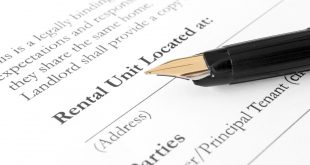As you’re considering buying a pre-built new condo in the GTA, it’s important to know that the purchase price is only a portion the total condo ownership cost. In addition to your property purchase/mortgage expenses you will also have to cover a few additional items such as condo fees, insurance and property tax.
Most of the fees are based upon the size or value of your unit, the number and types of amenities and staff required to run the facilities. For example, a building that has underground parking will typically have higher maintenance fees than one that does not.
The following is a brief overview of the main expenses that usually accompany pre-built condo ownership in Toronto.
Pre-Registration costs
For all intents and purposes, once you move into a newly constructed condo building your paying rent to start. That is, until your new condo building is “registered” with a provincial land registry office. The monthly “occupancy fee” you are charged by the development once you are living in the building but before the building is registered does not go towards your mortgage. Once the building registration takes place, normal mortgage payments processes then kick in.
Here is an example of how these “pre-registration” rental costs are calculated:
Purchase price :$200.000
Deposit paid to the builder: 20% / $40.000
The remaining balance due to the builder : $160.000
Interest to the builder for this remaining balance. Builders typically take the 1 year Mortgage interest rate posted from Bank of Canada. So if the interest rate is 3.75% it would be
$160.000 x 3.75% = $6.000/12 = $500 monthly
Additionally you have to pay condo fees, let’s say $200 monthly and property taxes, calculated based on the purchase price and the property tax rate, 200.000 x 0.08 = $1600 a year – $133.33 monthly.
The occupancy fee will be $500 + $200 + $133.33 = $833.33 monthly until registration is complete.
Here is some additional information on the difference between pre-registration and registration.
Condo Maintenance Fees
Condo fees are your share of the costs that contribute to running the building as a whole for all common areas, including amenities such as party rooms, swimming pools and fitness facilities. Typically these fees cover items such as maintenance staff, security and repairs and are usually based on the total square footage of your condo unit. These fees also include general maintenance e.g. window cleaning, snow shoveling, cleaning and landscaping.
Portions of your monthly condo fees go into a “reserve fund”. The reserve fund is there to cover any major repairs and replacements of common elements that will be needed as time passes. These can include the roof, exterior of the building, sidewalks, roads, sewers, heating, electrical, plumbing, elevators, laundry and recreational facilities.
Increasing condo fees
Condo fees can be increased due to an unexpected major repair not covered by the reserve fund, a lawsuit involving the condo corporation or to keep up with general rising costs of services.
Newly built condos may increase significantly in the second or third year due to certain amenities not being included in the first year. For example, a guest suite that a corporation may buy as an asset might not take effect until the second year.
Special assessments
This is an expenses that can be charged from time to time on top of regular monthly condos fees to help pay for major unexpected repairs or to cover shortfalls in the reserve fund.
Legal Fees
While the builder usually pays real estate service costs, you will have to pay for your own legal representation. Typically real estate lawyers charge between $700.00 and $2000.00 for their services, which are mostly focused on making sure the contract you sign is in order and meets industry and governmental regulations.
Mortgage Fees
Unless you buy your condo outright, at some point you are going to need a loan. Loans associated with real estate are usually called mortgages. After the bank lends you the money needed to pay for your condo in full, a mortgage is put in place to give individuals an easy and structured process to pay that money back. This is usually structured as a monthly repayment schedule. A mortgage repayment schedule is usually set up so that in the early years, a greater percentage of each payment covers interest charges and a smaller percentage covers principal repayment. Over time, this changes so that a greater percentage of each payment goes towards paying down the principal, and less towards paying interest.
The more of the principal you pay down, the greater the equity you build up in your condo. Basically, equity is the amount of your condo that you own. For example, if your condo is worth $350,000 and your mortgage is for $300,000, you have $50,000 in equity.
Resident Insurance
In most cases, you will be responsible for and required to maintain and repair the basic elements of your unit. Interior elements of your condo unit, such as plumbing and electrical are usually covered by the condo corporation’s insurance. The rest, basically everything from the paint inward, including your furniture and other contents of the unit, would be your financial responsibility.
Insurance policies may also have an impact on you if there is damage to your condo or surrounding condos; For example if there is a flood in your condo and it damages the condo below you, you may be responsible for costs associated with the repair of the resulting damage to other condos or to common areas. Part of the cost of tenant insurance also goes to cover you for liability should you directly cause any damage to the common areas of the building.
 StoryLine By CondoNow
StoryLine By CondoNow



